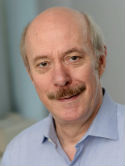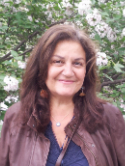| Abstract: |
In Saccharomyces cerevisiae, heme directly mediates the effects of oxygen on transcription through the heme activator protein Hap1. In the absence of heme, Hap1 is bound by at least four cellular proteins, including Hsp90 and Ydj1, forming a higher-order complex, termed HMC, and its activity is repressed. Here we purified the HMC and showed by mass spectrometry that two previously unidentified major components of the HMC are the Ssa-type Hsp70 molecular chaperone and Sro9 proteins. In vivo functional analysis, combined with biochemical analysis, strongly suggests that Ssa proteins are critical for Hap1 repression in the absence of heme. Ssa may repress the activities of both Hap1 DNA-binding and activation domains. The Ssa cochaperones Ydj1 and Sro9 appear to assist Ssa in Hap1 repression, and only Ydj1 residues 1 to 172 containing the J domain are required for Hap I1repression. Our results suggest that Ssa-Ydj1 and Sro9 act together to mediate Hap1 repression in the absence of heme and that molecular chaperones promote heme regulation of Hap1 by a mechanism distinct from the mechanism of steroid signaling. |





